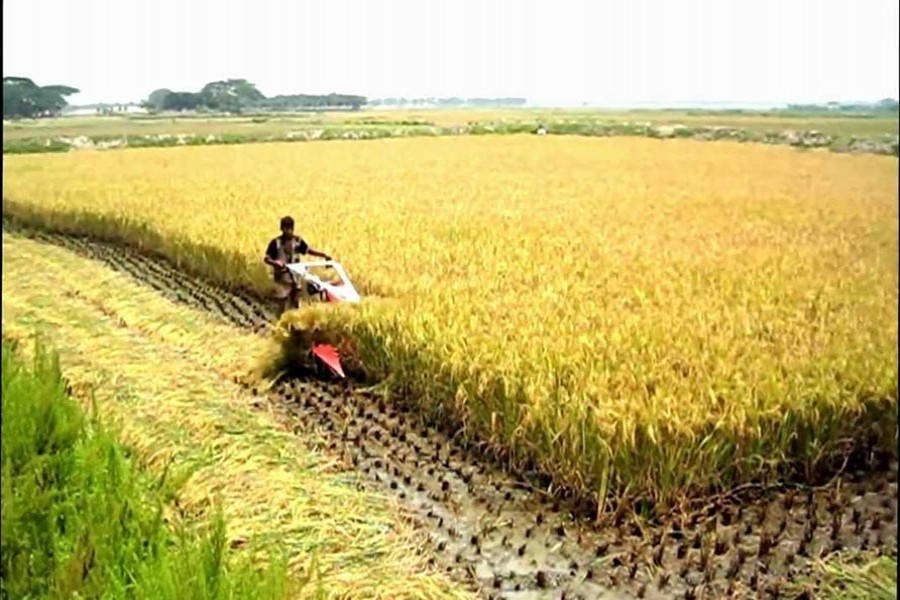The conflicting scenario of good harvest and bad price is, as though, an essential appendage to the country's agriculture sector. It is difficult to say when the farmers last smiled in return for their hard toil by way of fair price. For the last consecutive years, the country has been experiencing good harvest in respect of most of the agro crops including paddy, but there were grievances among growers of being denied the right price. This year, with the boro harvest now in full swing across the country, things have taken the worst toll imaginable. Farmers, distraught and aggrieved by the poor paddy price, have thrown their hard-toiled harvest on the highways. Even as an appalling demonstration of misery and rage, a farmer in Tangail has set fire to his standing crop.
Reports have it that current market price of boro paddy is Tk 500-600 a maund (37kgs) -- much lower than the production cost. Farmers are reportedly counting Tk 300 in losses per maund of paddy. In some parts of the country where boro is the only staple crop, such poor price is sure to cause utterly distressing situation for the growers. The sad thing is that like in the previous years, this year too market price of paddy is believed to have been manipulated by traders' syndicates all over the country orchestrated through rice mill owners and middlemen who knowing well that small farmers need to sell their paddy immediately after harvest set buying price at a deplorably low level. Coupled with this, few other factors are also believed to have worsened the situation. Import of rice, particularly coarse rice from neighbouring India at low prices, has proved to be a disincentive for traders to procure local rice/paddy at higher prices. The basic factor however, that did most harm to the farmers is the deficient procurement mechanism of the government.
The government had earlier announced that it would directly procure paddy from the growers to help them stay away from the middlemen/agents, but in practice it is the middlemen who are in full blown procurement business influencing prices at their sweet will. Over and above, government's procurement target in some of the major boro growing regions like Sunamganj is disproportionately low compared to the expected harvest. This also forces the growers to sell to the middlemen and incur heavy losses. As the farmers need to depend on middlemen and mill owners to sell their harvest, they are left exposed to various frauds as well.
The situation has already turned from bad to worse, with no effective measures taken up by the authorities, so far. The authorities, now, are at best trying to resort to reactive responses instead of what should have been well thought out plans ahead of the harvesting season. Given the situation, there is no choice for the authorities but to strengthen its drive to buy directly from the growers. To facilitate this, procurement targets in some select locations should be raised. Also stopping rice import immediately could improve the situation.


